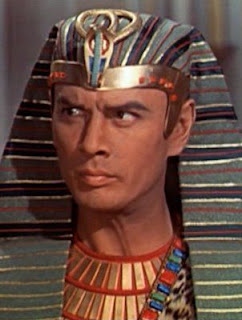A man in his right mind
The Fifth Sunday after Pentecost (Proper 7)
Year C
Luke 8:26-39
We’ve all seen the advertisements - for diet or beauty products,
exercises or fitness machines - which present the reader with two photographs,
generally marked “before” and “after”. In a similar “before and after” story in Luke’s
Gospel, a young man sits calmly at the feet of Jesus, “clothed and in his right mind”. At the beginning of the story, the man was raving,
naked and self-isolating. I did a
reflection on this passage yesterday morning at a meeting of the local
protestant clergy here in Clermont-Ferrand.
I think I prefer the French translations
in the TOB and the Louis Segond (making reference to "reason" and "good sense") to the English translation we’re going to read
on Sunday.
...habillé, et
revenu à la raison (TOB)
...vêtu, et dans son bon sens (LS)
I mean what
is, after all, your right mind? In what way “right”?
Is the young man’s mental map now what it ought to be, or what the village thinks it should be or even what Jesus has told him it should be? What is clear is that the young man was formerly unable to be a part of village life. He caused chaos when he was there and had even been physically restrained. If he escaped those chains or was allowed to flee, he would wander in the wilderness with beasts as his only companions. This is no longer the case. We are now presented with the “after” photograph. The crisis is over. The Greek word used by the evangelist for this young man’s latest state speaks of a restored capacity for discernment and most importantly judgement. In the second photograph he can now choose where before he was a victim of forces he could not control: Reason and good sense have returned.
Is the young man’s mental map now what it ought to be, or what the village thinks it should be or even what Jesus has told him it should be? What is clear is that the young man was formerly unable to be a part of village life. He caused chaos when he was there and had even been physically restrained. If he escaped those chains or was allowed to flee, he would wander in the wilderness with beasts as his only companions. This is no longer the case. We are now presented with the “after” photograph. The crisis is over. The Greek word used by the evangelist for this young man’s latest state speaks of a restored capacity for discernment and most importantly judgement. In the second photograph he can now choose where before he was a victim of forces he could not control: Reason and good sense have returned.
At the end of our story this Sunday Jesus convinces the man that his
mission is to enjoy his restoration to the life of his village and to testify to
what God has done for him. This dockside exchange of words gives us an indication of what a recovered mind might look like: The two of them "have words" there by the boat. Jesus has
restored and not replaced this young man’s mind. It is the negative forces which Jesus
overpowers and not the man himself. Let’s
keep in mind that Jesus interacts with the minds of the people he speaks to in
his parables and pronouncements. Jesus
is involved in a persuasive process with people who have the power of choice -
who can say yes or no. The parables are
directed to people who normally make the right decisions about their own best
interests and are able to discern truth from among other options. While they may not be the sort of people rich
enough to keep pearls or even to liquidate real estate holdings to purchase an
additional field, they nonetheless have sold and bought goods and can
appreciate the right mindedness of an individual who would trade several modest
pearls for a pearl of great price and who would sell ordinary plots of land to
purchase one which contained a treasure.
Reason and good sense allows you to to change your mind in a conversation with
Jesus - to discover and affirm new and better ways of thinking about God, the world and yourself.


